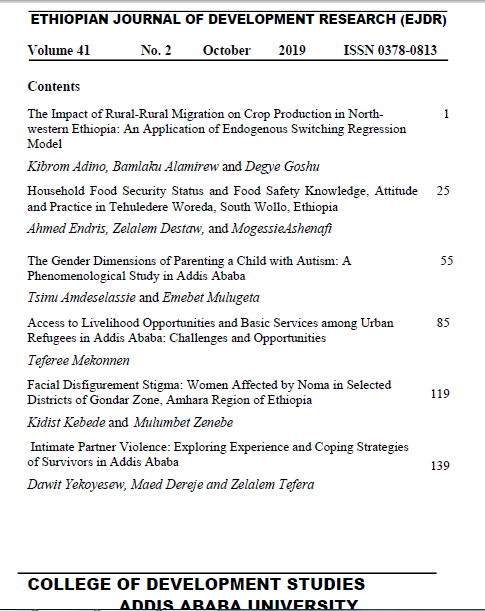Access to Livelihood Opportunities and Basic Services among Urban Refugees in Addis Ababa: Challenges and Opportunities
Keywords:
Refugees, livelihoods, urban basic services, humanitarian agencies, Addis AbabaAbstract
Ethiopia, with a refugee population of closer to a million, introduced
an Out of Camp Policy in 2010 where some refugees are allowed to
reside in urban areas mainly in Addis Ababa. The objective of the
study was to assess the extent to which basic urban services are
available to and affordable for urban refugees and identify the major
service providers. Data were generated using intensive desk review,
focus group discussion with refugees, and key informant interviews
with relevant government offices, UN and humanitarian agencies. The
findings revealed that most of the livelihood interventions and service
provisions for urban refugees executed by humanitarian agencies are
supported by grants that are often insufficient, uncoordinated, and with
short-term funding administered with poor technical experience.
Refugees complain about the escalating living expenses, limited access
to work, insufficient and low quality services, frequently rising house
rent, Ethiopian language skills deficiency and cultural differences as
major challenges in securing sustainable livelihoods. Hence, sufficient
assistance and strong coordination among humanitarian organizations
and involvement of the private sector in basic services provision,
employment creation, and capacity building efforts are recommended
to ensuring the betterment of the lives of urban refugees.

